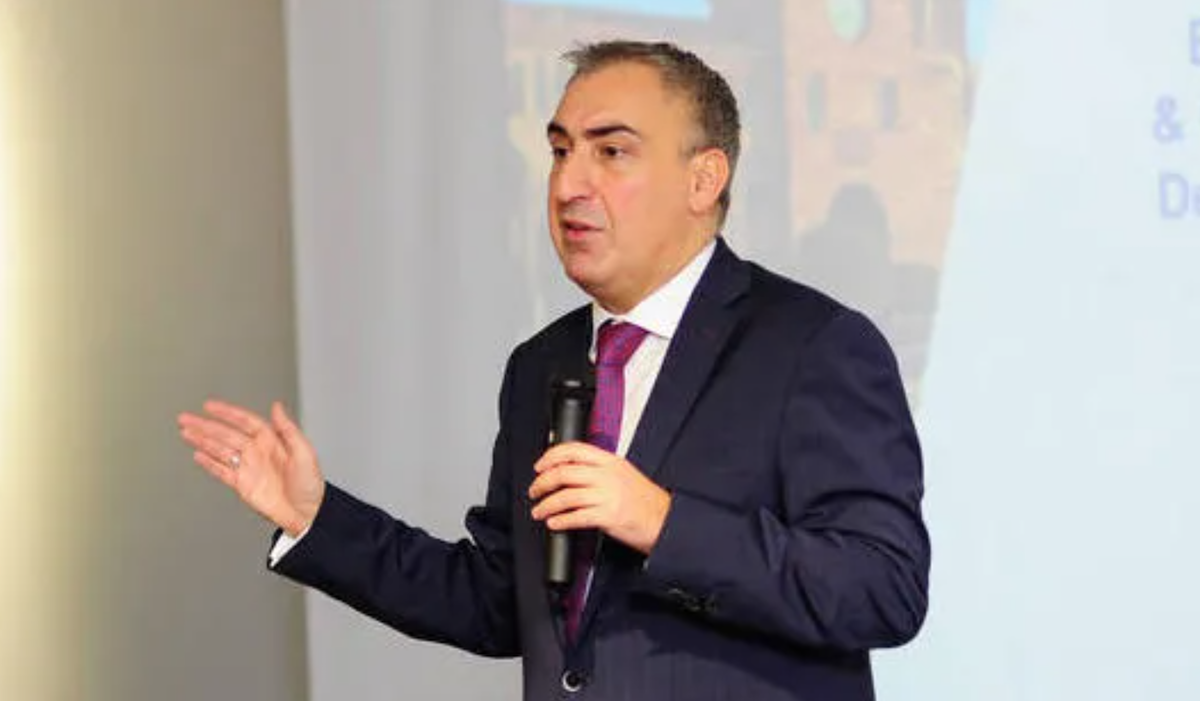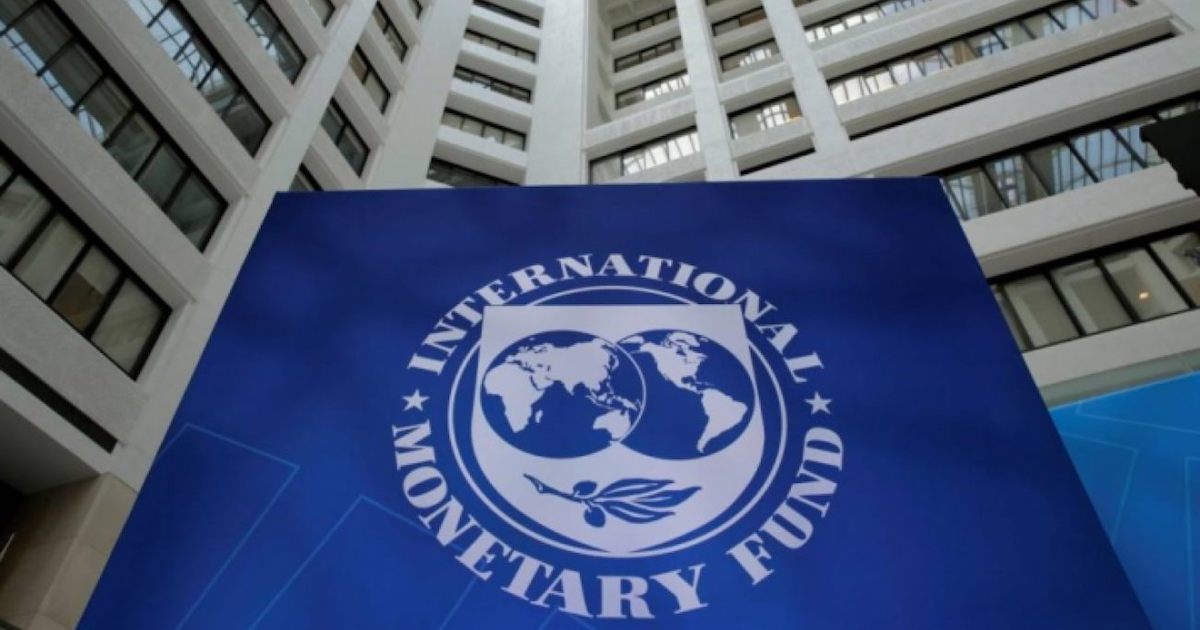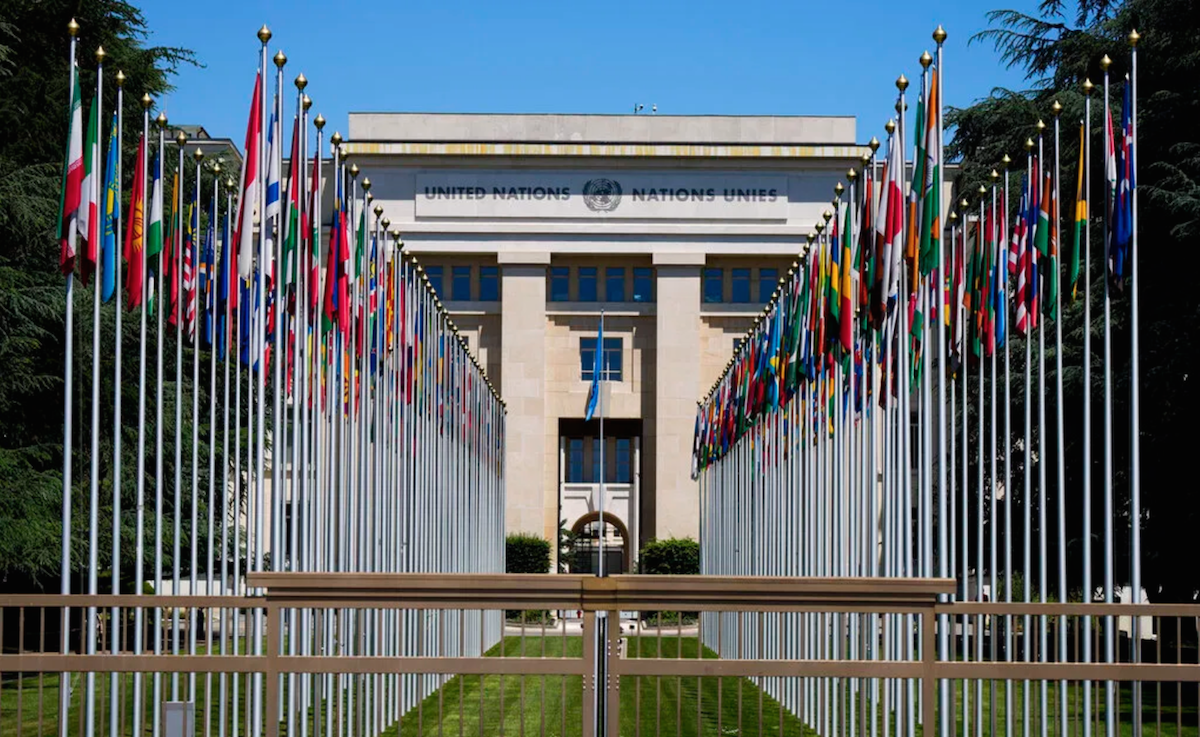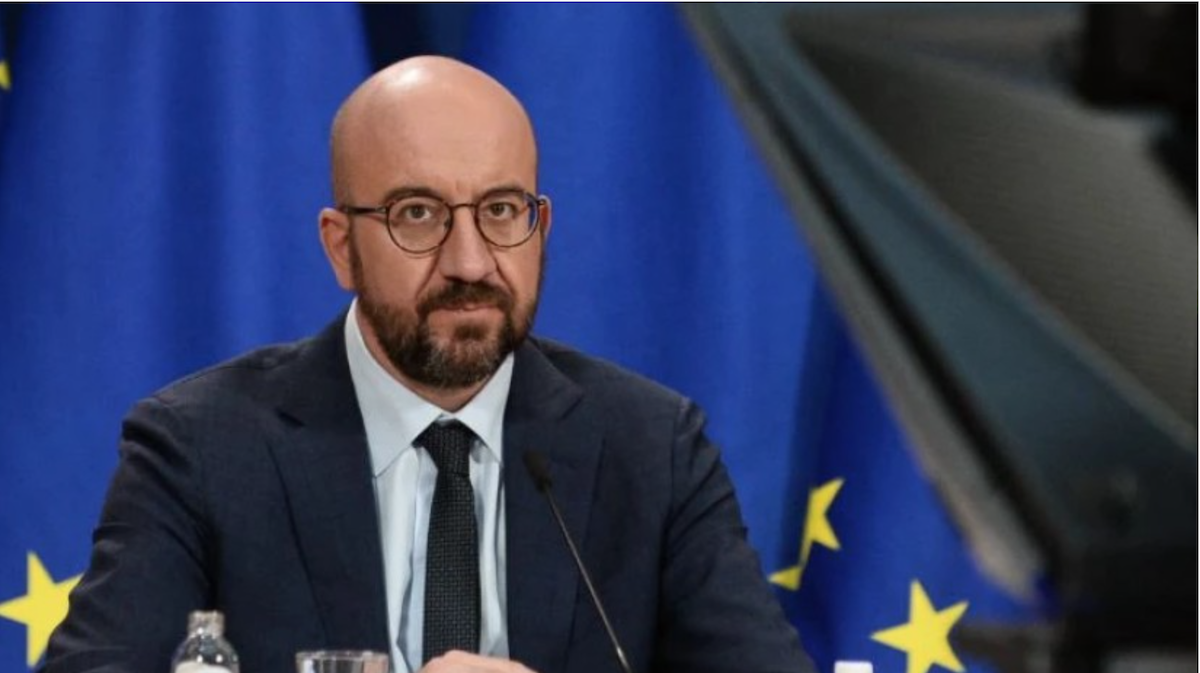
Georgia’s foreign exchange reserves
Nika Gilauri, former Prime Minister of Georgia and founder of the consulting firm Reformatics, commented on the $627 million drop in the National Bank’s foreign reserves in October, describing the development as alarming “even with relatively modest reserves.”
In October 2024, ahead of the elections, Georgia’s foreign reserves fell by a record $627 million, reaching $4.08 billion, marking the sharpest monthly decline in the history of the National Bank of Georgia.
Over the past year, Georgia’s foreign reserves have decreased by $1 billion. The last time the reserves were at this level was in July 2022.
Nika Gilauri:
“In October, the National Bank’s reserves fell by $627 million, dropping from $4.7 billion to $4.1 billion. The breakdown of this figure has not yet been published by the National Bank. It likely includes funds spent on currency auctions, the BMatch platform, and external debt servicing. However, the mere fact that foreign reserves were reduced by $627 million in one month (especially with reserves that were not particularly high to begin with) is deeply concerning. This is a historic figure for Georgia. In total, the National Bank spent $753 million to stabilize the exchange rate during the pre-election period (September-October), or 15.6% of the foreign reserves as of August.
“According to the credit rating agency Fitch, by the end of September, Georgia’s foreign reserves relative to the average monthly outflow (including imports and other factors), which is a key indicator of the country’s macroeconomic health, had already fallen below the critical threshold by 2.6 times. This is below the International Monetary Fund’s recommended three-times ratio and, in terms of macroeconomic stability, places Georgia among the countries with the highest economic risks. Given the results for October, it is expected that this indicator will drop further to 2.3 (from 7.3 in early 2021). In this regard, Georgia is in the worst position globally among countries with similar sovereign credit ratings (BB). Along with other economic risks, this significantly raises the likelihood of a downgrade in the country’s credit rating.
Why is this situation critical, and what can be expected in the near future?
“Foreign currency flows into Georgia each month (through tourism, exports, and remittances) and out of the country (mainly through imports, debt servicing, and other similar operations, most of which are dollar-denominated). When the inflow of foreign currency is less than the outflow, in a system with a free exchange rate, the national currency weakens, making imports more expensive. As a result, the amount of foreign currency spent on imports decreases, and the economy finds a new equilibrium.
“If the imbalance is short-term or seasonal (for example, due to a drop in tourism during the winter months or an increase in energy imports) or caused by external, one-off factors, the National Bank can intervene and use its reserves to stabilize the imbalance, with the expectation that reserves will replenish in the next period (such as the summer, when tourism revenue and energy exports increase). However, in the case of a fundamental shift in the economy—meaning when there is a non-seasonal, long-term imbalance between income and expenditure—maintaining the exchange rate by depleting reserves is ineffective and unsustainable. Ultimately, it will lead to serious negative consequences. The longer the National Bank artificially suppresses the exchange rate, the more severe the impact will be when the “compressed spring” is released.
“Over the past 10-12 years, the Georgian lari has experienced sharp devaluations over short periods of time—typically within one or two months—on several occasions: in January-February 2015 (during the “oil price crisis”), in October-November 2020 (amid the COVID-19 pandemic), and in May-June 2024 (following the passage of the “Russian law” on foreign agents). Each of these devaluations was preceded by the National Bank’s decision to spend significant amounts of reserves in an attempt to maintain the exchange rate. In 2015, reserves were reduced by approximately $120 million, causing the exchange rate to rise from 1.90 to 2.26. During the pandemic, $350 million was spent, and the lari depreciated from 3.00 to 3.40. In total, foreign reserves fell by $753 million during September and October of this year (a verified figure). Given historical trends and a brief analysis, it can be assumed that the lari will likely devalue significantly once the National Bank stops artificially stabilizing it.
“Amid international non-recognition of the elections and their results by foreign observers, as well as the government’s international isolation, the country is facing a fundamental economic crisis and imbalance. In this context, there is little sense in continuing to prop up the exchange rate.
“The devaluation of the lari will serve as evidence that the National Bank has acknowledged the election fraud and the political reality, recognizing that this is not a temporary crisis but a profound shift in the economy. At this point, it no longer makes sense to continue depleting reserves to stabilize the exchange rate.
“If the National Bank does not halt its actions in time and continues to spend reserves at this pace to “please the authorities,” it is likely that by the New Year, foreign reserves will drop another $1.0–1.2 billion. This would serve as a red flag for the market, signaling that the National Bank’s reserves can no longer maintain the lari’s stability. In this case, a spiral of currency devaluation can be expected, ultimately leading to a total economic collapse. To avoid this, the National Bank must release the exchange rate in the coming days to allow it to find a new equilibrium, and then attempt to stabilize at that new level.
“This scenario, undoubtedly, is far better than the continued depletion of reserves to the point where the market loses all confidence in the National Bank, resulting in an economic collapse. However, even in the best-case scenario, a significant decline in the currency’s value seems unavoidable. At a minimum, we can expect a sharp rise in prices, a substantial increase in the cost of credit for those with dollar-denominated loans and lari-denominated incomes, higher interest rates across the board, and a dramatic halt to economic growth. This is already the reality, which the National Bank is merely postponing.
“It is also important to note that more than 70 percent of the government’s external debt is denominated in foreign currency (mainly in dollars and euros), while the government’s revenues are in lari. As a result, servicing the debt will become much more expensive for the state. All macroeconomic indicators expressed in dollars—such as nominal GDP, GDP per capita, and the debt-to-GDP ratio—will worsen. The exchange rate will likely depreciate by 20-25 percent, which means that the currency gains observed over the past two years (mainly driven by inflows from Russia) will come to a halt within two months, and the country’s dollar-denominated economy will revert to a per capita GDP level of around $6,000.
Why is this trend fundamental rather than temporary or one-time?
“According to our Western partners, the recent elections in Georgia were neither free nor fair. Moreover, our American and European partners are demanding a transparent investigation into the violations identified by observers. The EU Ambassador to Georgia has stated that, as a result of these actions, Georgia’s EU accession process has been suspended, while the U.S. State Department has said that, together with European partners, it may launch an international investigation into the October 26 elections.
“In this context, a political crisis is inevitable, and it has arrived: the ruling party is defending the formal election results, while the opposition and a significant portion of voters do not trust the outcomes, citing concrete evidence of fraud.
“It is excessive to talk about the peaceful and stable development of the country under these circumstances, as the government faces international isolation, the political crisis deepens, and the country’s already tarnished international reputation continues to suffer. In addition to the political crisis, which will not subside until new elections are held, the country is facing an acute economic crisis—possibly the most severe in the last 25 years.
International Financial Institutions
“For many years, international financial institutions have played a crucial role in stabilizing Georgia’s economy and improving the welfare of its people. This support took the form of grants and loans directly financing the state budget as well as supporting the private sector. The cessation of such support would slow economic growth and bring many infrastructure, investment, budgetary, and other economic projects to a standstill.
“From 2019 to 2023, international financial institutions provided concessional loans and grants totaling about $500 million annually to both the private sector and the state budget. Some of these funds have already been suspended by European and American institutions, and in light of the unrecognized election results, there is a high probability that international financial institutions’ programs will be nearly entirely halted. These transfers had once served as a vital financial “cushion” for the country’s economy—a guaranteed source of income, most of which will now likely be lost, further exacerbating the current account deficit. The budget for the coming year already includes $2 billion lari in financing from donor credits and international financial institutions. A large portion of this funding is allocated for infrastructure projects. Georgia receives these loans on favorable terms (interest rates of 2-3 percent). It is likely that many large projects will be halted, meaning these funds will not enter the country, which will lead to a significant imbalance in the economy.
“It is also important to remember the International Monetary Fund (IMF) program in Georgia, which was suspended a year ago due to the National Bank’s improper actions. The existence of this program, along with many other beneficial projects, is crucial, as it helps countries navigate economic crises. In difficult times, the IMF provides affordable and long-term financial assistance, helping nations recover from crises. Georgia has been a member of the IMF since 1992. Over this period, the IMF has provided financial resources to the country on 10 occasions. Today, the program is suspended, which has caused serious reputational damage to Georgia.
Sharp Decline in Foreign Investments
“A significant decrease in foreign investment in the country is to be expected. Moreover, some existing foreign investors may exit the market altogether. The average volume of foreign direct investment in Georgia over the past three years has been around $1.8 billion. In the context of international isolation, this figure is likely to drop to a minimum, similar to the levels seen during the pandemic, possibly falling to just $500 million. Additionally, it is highly probable that the shares of Georgian companies listed on the stock exchange will continue to lose value. Since April this year, the share price of Bank of Georgia has fallen by 17 percent, TBC Bank by 15 percent, and Georgia Capital by 18 percent. Since the enactment of the “Russian law,” the market value of these companies has declined by a total of $1.4 billion.
“On the first working day after the elections, the prices of these Georgian companies dropped significantly (by an average of 10 percent). Although the prices have slightly risen in the past week, further declines are expected in light of the international isolation of the Georgian authorities and the EU Ambassador’s statement. Such fluctuations create an unstable environment for investors. When evaluating Georgian companies, investors likely considered the prospect of Georgia’s Euro-Atlantic integration, but today’s reality no longer aligns with those expectations.
“Given these factors, it is clear that the inflow of investment into the country will sharply decline, and foreign companies’ trust in the Georgian government will further diminish.
Labor Migration and Remittances
“There is also a high probability that labor migration will increase, and remittances from Georgian emigrants will decrease. The decline in remittances will be driven by uncertainty and distrust in the government, which will particularly affect transfers related to real estate and small businesses abroad.
The Banking Sector
“As a result of the unrecognized elections by Europe and the United States, and the isolation of the Georgian government, the country’s economic risk (referred to as the country risk premium) has significantly increased. This means that borrowing costs for banks will rise (and some banks may even be unable to attract additional credit resources). Since nearly 100 percent of the financial resources in Georgian banks come from American and European funds, the cost of attracting these resources will increase substantially, directly affecting the cost of money in Georgia.
“Furthermore, in the face of increased economic risks, there is a high likelihood that non-residents will begin withdrawing their savings from Georgian banks (currently, non-resident deposits in Georgian banks amount to up to 11 billion lari). A similar trend is observable among the Georgian population, which is either withdrawing money from accounts or converting it into dollars. This could lead to increased demand for dollars and liquidity problems in the banks. The result could be a banking crisis (a “bank run”), which would severely impact Georgia’s economy.
“Moreover, it is critically important to consider the potential impact of personal and/or institutional sanctions from the U.S. or European countries, which are highly likely in light of their statements regarding election fraud. If such sanctions are imposed, the current situation could sharply increase the country’s risk, forcing correspondent banks to limit international transfers to Georgian banks. This would deal a severe blow to the already fragile economy.
Should Georgia Pin Its Hopes on Russia and/or China?
“The government will likely attempt to attract new investments from Russia or China to replace Western investors (it is likely that the government has already made such promises to big business, which is why it remains silent). However, this would create even greater problems. Russian and Chinese capital come with their own rules and demands. Attracting this capital would lead to particular challenges. If the government follows this path, the first influx of money will likely be from sanctioned or illicit sources, followed by additional sanctions from the West. Ultimately, this will lead to an economic collapse.
“Typically, such capital comes with strict conditions—the investor becomes the decision-maker, while Georgian entrepreneurs would find themselves serving as subordinates, rather than equals. Most of the capital currently in Georgia is managed by Georgian companies. This is something Georgian businesses are accustomed to, as it aligns with the modus operandi of European and American investors. However, Russian illicit money would be controlled by Russian illicit business interests, and Georgian businesses would simply serve them, not to mention the fact that this would inevitably trigger further sanctions.
What Is the Way Out?
“Rapidly overcoming such a severe crisis is no simple task. It requires a fundamental shift in the government’s approach to the election results. The only way to salvage the situation is to restore Georgia’s reputation, avoid international isolation, and overcome the expected political and economic crisis. This can only be achieved through new elections held under fair conditions. Even if some opposition members enter parliament, the expected economic crisis will not be mitigated, because the opposition MPs will only serve as institutional participants in the crisis, nothing more.
“I reiterate, both the Georgian people and our Western partners have characterized the elections as “not free and fair,” which means that all state institutions—parliament, the future government, and other bodies—will be deemed illegitimate by Western partners. If you were an investor, deciding whether to invest in Georgia (where, according to the EU ambassador, the “EU integration process has been suspended due to the actions of the Georgian government”) or any Eastern European country, where would you invest? In a country with an illegitimate government, or would you take the risk in another nation?
“It is grossly incompetent and naive to claim that the entry of any opposition party into parliament will ease the situation, restore the country’s economic reputation, and improve relations with Western partners, ultimately preventing an economic crisis.
“New, free, and fair elections—recognized by the people and the international community—will restore Georgia’s reputation in the eyes of international investors, improve the investment climate, revive international projects, and save the country from economic collapse.”
Georgia’s foreign exchange reserves



